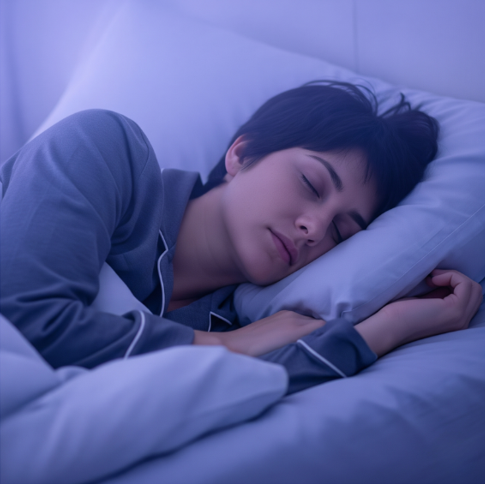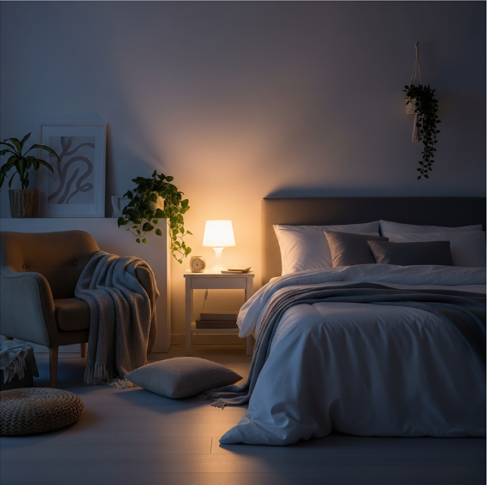Living with Parkinson’s Disease (PD) often brings a unique set of challenges, and among the most prevalent are sleep disorders. These issues aren’t just an inconvenience; they can significantly impact quality of life, exacerbate motor and non-motor symptoms, and even affect the effectiveness of treatments. But here’s the good news: many sleep problems in PD are treatable. Understanding the common sleep disturbances and adopting targeted strategies, often in consultation with healthcare professionals, can lead to substantial improvements.

The Nighttime Landscape of PD: Common Sleep Disruptions
Sleep disorders in PD can manifest in various ways, often stemming from the disease itself, its medications, or co-occurring conditions. Recognizing these is the first step toward effective management:
- Insomnia: Difficulty falling asleep or staying asleep is very common. This can be due to motor symptoms like tremors or rigidity, frequent nighttime urination (nocturia), restless legs syndrome (RLS), or even anxiety and depression associated with PD.
- REM Sleep Behavior Disorder (RBD): This is a hallmark sleep disorder in PD, often preceding motor symptoms by years. Individuals act out their dreams, sometimes vividly and violently, leading to potential injury to themselves or their bed partner.
- Restless Legs Syndrome (RLS): An irresistible urge to move the legs, often accompanied by uncomfortable sensations, particularly in the evening or at night. This can make falling and staying asleep incredibly difficult.
- Nocturia: Waking up frequently during the night to urinate. This fragments sleep and contributes to daytime fatigue.
- Sleep Apnea: A condition where breathing repeatedly stops and starts during sleep. This can lead to loud snoring and excessive daytime sleepiness.
- Daytime Sleepiness (Hypersomnia): Despite fragmented nighttime sleep, many individuals with PD experience overwhelming daytime sleepiness, sometimes leading to “sleep attacks.” This can be a side effect of certain PD medications or a direct consequence of poor nighttime sleep.
Strategies for a Restful Night
Addressing sleep disorders in PD requires a multifaceted approach. Always consult your neurologist or a sleep specialist before making significant changes to your routine or medications.
1. Optimize Your Sleep Environment and Habits (Sleep Hygiene)
Creating a conducive environment is fundamental:
- Establish a Consistent Sleep Schedule: Go to bed and wake up at roughly the same time every day, even on weekends. This helps regulate your body’s natural sleep-wake cycle.
- Create a Relaxing Bedtime Routine: Wind down with activities like reading, a warm bath, or gentle stretching. Avoid stimulating activities like screen time (phones, tablets, TVs) at least an hour before bed.
- Optimize Your Bedroom: Keep your bedroom dark, quiet, and cool. Invest in comfortable bedding.
- Limit Naps: While tempting, long or late-afternoon naps can interfere with nighttime sleep. If you must nap, keep it short (20-30 minutes) and early in the afternoon.

2. Dietary and Lifestyle Adjustments
Simple changes can have a big impact:
- Mind Your Intake: Limit caffeine and alcohol, especially in the afternoon and evening. Both can disrupt sleep.
- Stay Hydrated, Strategically: Drink plenty of fluids during the day, but reduce fluid intake in the hours leading up to bedtime to mitigate nocturia.
- Regular Exercise: Engage in moderate, regular physical activity during the day. Avoid vigorous exercise too close to bedtime. Exercise can improve sleep quality, but timing is key.
3. Medication Review and Management
Your PD medications can significantly influence your sleep.
- Review with Your Doctor: Discuss any sleep disturbances with your neurologist. They may adjust medication timing or dosage, or consider alternative medications. For example, some dopamine agonists can cause daytime sleepiness, while others might interfere with sleep if taken too late.
- Addressing RBD: Medications like clonazepam or melatonin are often prescribed for RBD. Your doctor will determine the best course of action.
- Managing RLS: Specific medications, often dopaminergic agents, can help manage RLS symptoms.
4. Specialized Interventions
For persistent issues, specialized approaches may be necessary:
- Cognitive Behavioral Therapy for Insomnia (CBT-I): This is often considered the gold standard non-pharmacological treatment for chronic insomnia. It helps identify and change thoughts and behaviors that interfere with sleep.
- Light Therapy: For those with disrupted circadian rhythms, exposure to bright light therapy at specific times of the day can help reset the body clock.
- Treating Sleep Apnea: If sleep apnea is suspected, a sleep study (polysomnography) will be recommended. Treatment often involves Continuous Positive Airway Pressure (CPAP) therapy.

The Takeaway
Prioritizing sleep in PD is not just about feeling less tired; it’s about enhancing your overall well-being, improving motor function, and boosting cognitive clarity. By actively addressing sleep disorders with your healthcare team and implementing proven strategies, you can take significant steps toward a more restorative night’s rest and, ultimately, a better quality of life.
Reference: https://www.parkinson.org/blog/care/grief

Leave a Reply